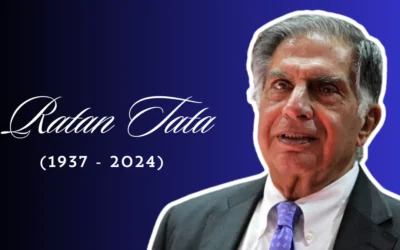Key Highlights
- Creation of NFRA: Established under Section 132 of the Companies Act, 2013, to improve audit quality and enforce auditing standards.
- Historical Drivers: Formed in response to major financial scandals like the Harshad Mehta scam, Satyam scandal, and Nirav Modi case, highlighting the need for independent regulation.
- Enhanced Accountability: NFRA’s rigorous oversight has improved auditor accountability, audit quality, and transparency, while also increasing the fear of penalties.
- Advice for Auditors: Dr. Amarjit Chopra advises prioritizing ethics, continuous learning, adequate compensation, active listening, and a proactive approach.
- Collaborative Future: Emphasizes the need for NFRA and ICAI to work together, integrating technological advancements and global best practices to shape the future of auditing in India.
Dr Amarjit Chopra: NFRA’s Role in Strengthening India’s Auditing Standards. The establishment of the National Financial Reporting Authority (NFRA) has fundamentally changed the auditing profession in India, bringing in stringent regulations and rigorous oversight mechanisms. This change has instilled a sense of accountability among auditors, but also fear, leading some Chartered Accountant (CA) firms to reconsider their audit services. In this detailed article, we will explore the origins and objectives of NFRA, its impact on the auditing field, and insights shared by Dr. Amarjit Chopra, a veteran Chartered Accountant with over fifty years of experience.
The Genesis of NFRA
The National Financial Reporting Authority (NFRA) was established under Section 132 of the Companies Act, 2013. Its primary objective is to enhance the quality of audits and ensure adherence to auditing and accounting standards. The creation of NFRA was driven by a series of financial scandals and regulatory failures that highlighted the need for an independent regulatory body.
Historical Context
The Harshad Mehta scam of the early 1990s exposed significant flaws in the regulatory framework. The Reserve Bank of India (RBI) urged the Institute of Chartered Accountants of India (ICAI) to take action against the implicated auditing firms. However, delays in the submission of the committee report by the RBI hampered the disciplinary proceedings, underscoring the need for a robust regulatory mechanism.
The Satyam scandal in 2009 further emphasized the urgency for an independent regulatory body. Despite ICAI’s swift disciplinary actions, the incident revealed systemic issues within the auditing process. The Nirav Modi case, which followed, served as the final catalyst for the establishment of NFRA. These scandals collectively underscored the necessity for an autonomous body to oversee and enhance the quality of audits in India.
Also Read: How this 25-year old CA quit an MNC job to be a Partner at a CA firm: Moksh Bandi
NFRA’s Creation and Early Challenges
The establishment of NFRA was not without its challenges. The regulatory body had to navigate a complex landscape of existing laws and practices. Its mandate to approve auditing and accounting standards, conduct quality assessments, and impose penalties required a nuanced understanding of the auditing ecosystem. NFRA’s early efforts focused on building a robust framework for auditing standards and establishing a transparent disciplinary process.
Objectives and Functions of NFRA
NFRA’s mandate is to uphold high standards of auditing and accounting practices. Its key objectives include:
- Approval of Auditing and Accounting Standards: NFRA approves standards submitted by ICAI, ensuring alignment with global best practices.
- Quality Assurance: NFRA conducts inspections and evaluations of audit firms to assess compliance with prescribed standards.
- Disciplinary Actions: NFRA has the authority to impose penalties and take disciplinary actions against auditors and audit firms for misconduct.
- Regulatory Oversight: NFRA operates as an independent regulator, free from the influence of the auditing profession, thereby enhancing the credibility and integrity of the audit process.
NFRA’s Role and Responsibilities
NFRA’s responsibilities extend beyond just overseeing the auditing standards. It plays a critical role in ensuring that financial reporting and audit processes are transparent and reliable. This includes the authority to:
- Investigate Misconduct: NFRA can investigate instances of professional misconduct by auditors.
- Issue Directions: It can issue directions to auditors and audit firms to improve audit practices.
- Monitor Compliance: NFRA monitors the compliance of auditors with established standards and guidelines.
- Impose Sanctions: It can impose monetary penalties and other sanctions on auditors and audit firms found guilty of misconduct.
Impact on the Auditing Profession
The establishment of NFRA has had profound implications for the auditing profession in India. While it has introduced stringent regulations and heightened accountability, it has also instilled a sense of apprehension among auditors. Dr. Amarjit Chopra offers a nuanced perspective on both the positive and negative ramifications of NFRA’s establishment.
Positive Impacts
Enhanced Accountability
NFRA’s rigorous oversight has significantly improved the accountability of auditors. The imposition of substantial penalties for misconduct has acted as a deterrent against unethical practices. This increased accountability has elevated the standards of auditing in India, ensuring that auditors adhere to best practices and maintain high ethical standards.
Improved Audit Quality
The enforcement of stringent standards has led to a marked improvement in the overall quality of audits. NFRA’s focus on thorough inspections and evaluations has compelled audit firms to adhere to global best practices. The regulatory body’s efforts have fostered a culture of excellence and precision within the auditing profession.
Greater Transparency
NFRA’s mandate to ensure transparency in the auditing process has enhanced the credibility of financial reports. The stringent disclosure requirements and compliance checks have fostered a culture of transparency and integrity. This increased transparency has bolstered stakeholder confidence in the audited financial statements.
Network Relationship Tracking
NFRA’s inspections have revealed undisclosed relationships within audit networks, addressing potential conflicts of interest and ensuring impartiality. The regulatory body’s efforts have helped in identifying and mitigating risks associated with network affiliations, thereby enhancing the overall integrity of the auditing process.
Also Read: How This Finance Girl Used LinkedIn to Job Win in Dubai CA Swati Bagri 4 Tips
Challenges and Concerns
Fear of Penalties
The fear of stringent penalties has led some CA firms to reconsider their audit services. The risk of hefty fines and disciplinary actions has created a cautious approach towards accepting audit assignments. This apprehension has affected the willingness of auditors to undertake high-risk audit engagements.
Increased Audit Fees
The heightened accountability and stringent regulations have led to an increase in audit fees. Auditors now demand higher compensation to offset the risks involved in conducting audits under NFRA’s oversight. The need for better documentation, processes, and technological investments has further contributed to the escalation of audit fees.
Ethical Conduct
Dr. Chopra emphasizes the need for ethical conduct not only among auditors but also among CFOs, company secretaries, directors, and promoters. The focus on auditor accountability should extend to other key stakeholders to ensure a holistic approach to financial integrity. The ethical conduct of all parties involved is crucial for maintaining the credibility of the auditing process.
Advice to CA Firms
In light of the challenges posed by NFRA, Dr. Chopra offers valuable advice to CA firms to navigate the evolving landscape of audit practices.
Prioritize Ethics
Ethics should be the cornerstone of auditing practices. Auditors must uphold high ethical standards and refrain from compromising the quality of audits. Accepting audit assignments should be contingent upon the ability to maintain independence and adhere to auditing standards.
Continuous Learning
The dynamic nature of the auditing profession necessitates continuous learning. Auditors must stay updated with the latest developments in auditing standards, regulations, and technological advancements. Unlearning outdated practices and relearning new methodologies is crucial for maintaining competence and relevance.
Adequate Compensation
Audit fees should reflect the complexity and risks associated with the audit assignments. Adequate compensation ensures that auditors can invest in better documentation, processes, and technology, thereby enhancing the quality of audits.
Active Listening
Being a good listener is essential for auditors. By paying attention to the nuances of audit assignments and understanding the concerns of audit staff, auditors can gain valuable insights and make informed decisions.
Passion for Auditing
Passion drives excellence. Auditors who are passionate about their work are more likely to excel and maintain high standards. Dr. Chopra emphasizes the importance of enjoying the auditing process and pursuing it with dedication.
Proactive Approach
Auditors should adopt a proactive approach and communicate their findings effectively. Rather than acting as passive observers, auditors should actively highlight issues and provide valuable insights to stakeholders.
Collaboration between NFRA and ICAI
Dr. Chopra advocates for a collaborative approach between NFRA and ICAI. Both organizations should work together to support and complement each other’s efforts. While NFRA focuses on regulatory oversight, ICAI should take the lead in educating its members on ethical standards and auditing practices.
Educational Initiatives
ICAI should organize conferences, workshops, and training programs to keep its members informed about the latest developments in auditing standards and regulations. Continuous professional development is essential for maintaining high standards in the auditing profession.
Ethical Guidance
ICAI should provide guidance on ethical conduct and best practices in auditing. By fostering a culture of integrity and professionalism, ICAI can enhance the credibility of the auditing profession.
NFRA’s Role in Ensuring Audit Quality
The role of NFRA in ensuring audit quality cannot be overstated. Through its rigorous oversight and enforcement mechanisms, NFRA has elevated the standards of auditing in India. The regulatory body’s efforts have resulted in several key improvements in the auditing landscape.
Stricter Enforcement of Audit Rules
NFRA’s strict enforcement of audit rules has ensured that auditors adhere to high standards of practice. Section 144 of the Companies Act, which restricts auditors from providing non-audit services to their audit clients, is now enforced more stringently. This enforcement has reduced conflicts of interest and enhanced the independence of auditors.
Comprehensive Auditing Standards
NFRA emphasizes the importance of interpreting auditing standards as a whole, rather than focusing on individual words and sentences. This holistic approach ensures that audits are conducted with a comprehensive understanding of the standards, leading to more accurate and reliable audit outcomes.
Focus on Audit Quality
NFRA’s inspections and evaluations have highlighted areas for improvement in audit quality. The regulatory body’s focus on thorough inspections and quality assessments has compelled audit firms to enhance their practices and adhere to global best practices. This focus on quality has resulted in more reliable and credible audits.
The Future of Auditing in India
The future of auditing in India is poised for significant transformation, driven by NFRA’s regulatory framework. While challenges remain, the emphasis on accountability, transparency, and quality will shape the auditing landscape in the years to come.
Technological Advancements
The integration of technology into auditing practices will play a crucial role in enhancing audit quality. Auditors must stay updated with the latest technological advancements and incorporate them into their practices. The use of advanced data analytics, artificial intelligence, and blockchain technology will revolutionize the auditing process, making it more efficient and accurate.
Global Best Practices
Adopting global best practices will be essential for maintaining high standards in the auditing profession. NFRA’s emphasis on aligning with international standards will ensure that Indian audits are recognized and respected globally. This alignment will enhance the credibility of Indian financial reports and foster investor confidence.
Continuous Professional Development
Continuous professional development will be crucial for auditors to stay relevant in the evolving landscape. ICAI’s role in providing training and education will be vital in ensuring that auditors are equipped with the latest knowledge and skills. This continuous learning will enable auditors to maintain high standards and adapt to changing regulatory requirements.
Collaboration with Regulatory Bodies
To ensure the continued growth and improvement of the auditing profession, collaboration between NFRA and other regulatory bodies will be essential. By working together, these organizations can share best practices, address emerging challenges, and develop comprehensive solutions that benefit the auditing community as a whole.
Emphasis on Ethical Practices
Maintaining high ethical standards will remain a cornerstone of the auditing profession. Auditors must prioritize integrity and transparency in all their activities. NFRA and ICAI should continue to promote ethical conduct through training programs, workshops, and continuous monitoring of audit practices.
Stakeholder Engagement
Engaging with stakeholders, including clients, regulatory bodies, and the public, will be critical for the auditing profession. Open communication and transparency will help build trust and confidence in the auditing process. Auditors should actively seek feedback and incorporate stakeholder perspectives into their practices.
Wrapping Up
The establishment of NFRA marks a significant milestone in the evolution of audit practices in India. While it has introduced stringent regulations and heightened accountability, it has also instilled a sense of fear among auditors. Dr. Amarjit Chopra’s insights shed light on the positive and negative impacts of NFRA’s establishment and offer valuable advice to CA firms navigating the evolving landscape of audit practices.
As the auditing profession continues to evolve, it is essential for auditors to uphold high ethical standards, stay updated with the latest developments, and adopt a proactive approach. Collaboration between NFRA and ICAI is crucial for fostering a culture of integrity and professionalism in the auditing profession. By working together, both organizations can enhance the credibility and quality of audits in India.
The future of auditing in India holds promise, driven by technological advancements, global best practices, and continuous professional development. NFRA’s role in ensuring audit quality will be pivotal in shaping the future of the profession. As auditors embrace these changes and adapt to the evolving landscape, the auditing profession will continue to thrive and contribute to the overall financial integrity of the nation.
Also Read: Ever Wondered How Parveen Sharma Became the CA Sensation Uncover 8 Secrets





















































0 Comments